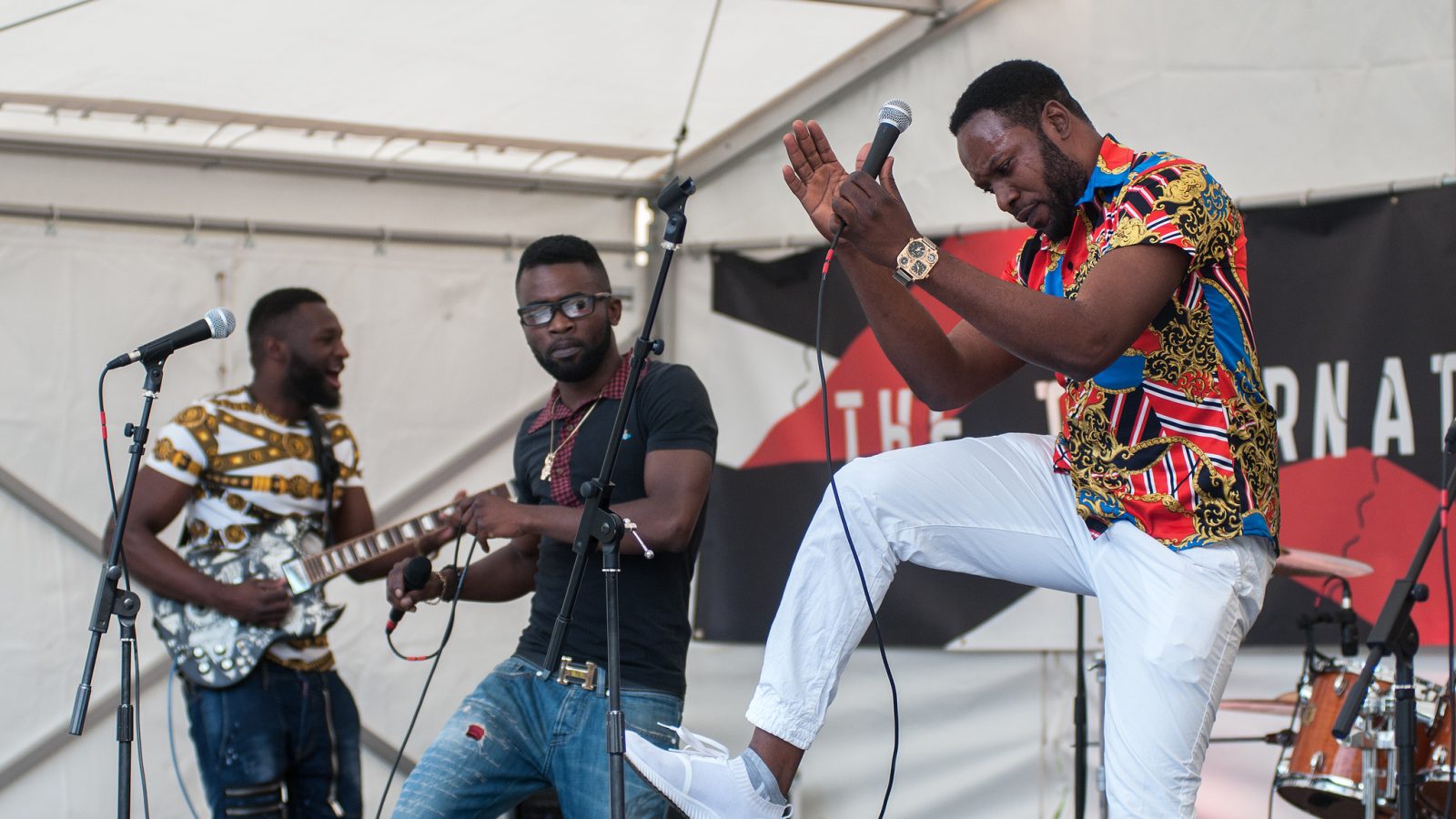The Congolese have no generic term to identify their music. People speak of miziki na biso (our music) to distinguish it from imported sounds, but even that phrase relies on the French word musique rendered into Lingala. Over the years, various styles of Congolese music have been called by the names of the dances from which they sprang or which they generated, but none has ever applied to the whole, expansive genre. The global entertainment industry can’t abide this sort of thing. Its publicists and salesmen seem unable to function without names to label their products, and journalists and DJs are equally dependent on these tags.
Their first attempt at a catchy moniker for Congolese music was rumba rock in the 1980s. There was some rationale for this: in the 1950s and 60s Congolese musicians had ardently embraced Cuban styles such as rumba, and indeed they referred to some of their original compositions as “rumbas”. At the same time, the Congolese sound was quite distinct from anything played in Cuba, thanks in large part to electric guitars – instruments associated with rock. The problem was that “rumba rock” implied that Congolese music was an artificial fusion of two foreign forms, which it most definitely was not, and it was never a term that local musicians or fans used. Hence soukous, the tag that has gained most recognition in Europe and America since the late 1980s. A sinuous, almost onomatopoeic word, it is uniquely Congolese – though, like miziki, it’s a corruption (or should we say redemption?) of a French word. The problem with this one is that it’s applied much too broadly.
In Congo, “soukous” refers to a particular dance style popular in the late 1960s, and more recently it’s been a football term to describe a cunning feint when dribbling the ball. Using the word to identify music as different as Kallé Kabasele’s classics and Koffi Olomide’s latest is like referring to everything from “Mystery Train” to “She Bangs” as twist. Since the turn of the century, Congolese artists in their fifties and sixties such as Sam Mangwana, Papa Noel, Mose Fan Fan and the group Kékélé have revived the sounds of their youth and with them an old name, rumba. While acknowledging Cuban influences, they insist their music is indigenous to Congo and so, in fact, is the name. Rumba, they say, is the Spanish mispronunciation of nkumba, the KiKongo word for “waist”. Afro-Cubans of Congolese ancestry had taught successive generations a social dance from the old country, a style in which a man and a woman held each other by the waist. That was the rumba that returned to Congo on records and radio waves in the twentieth century. But that doesn’t mean that rumba is a correct term for all Congolese dance music. After all, Congo is the original Land of a Thousand Dances.
Header image: Flickr


